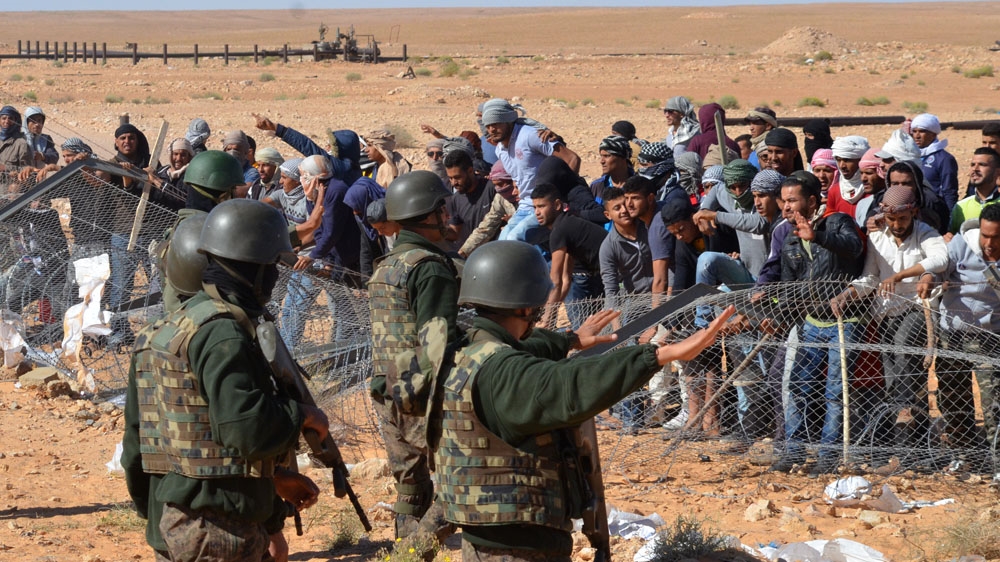Tunis – Government-led negotiations with a group of protestors in the Kebili area (600 km south of Tunis) put an end to nearly four months of social protests and sit-ins that have disrupted oil and gas production in the energy-producing desert areas in the southeast.
Tunisian Minister of Social Affairs Mohammed Trabelsi announced the signing of a final agreement with the protestors, who are demanding development and employment in the regions of Douz, Al-Qalaa and Fawwar in the Kebili governorate.
He confirmed that the agreement resolved the crisis and opened the oil pumps and gas valves. He considered it “as a new dynamic start that ends all clashes and encourages the dialogue approach and joint action to implement what was agreed upon with the aim of promoting development in Kebili and southern Tunisia.”
Through this agreement, the Tunisian government avoided confronting the protestors by force by implementing the presidential decree that designated areas of natural resources production as “closed military zones”. Issued at the end of June, the decree entrusted the task of protecting these areas to the military establishment.
The fragility of the political and security situation has forced the government to go back on the strict implementation of the laws, despite the protestors’ disruption of gas oil production.
During the weeks of negotiations, the government received a list of all protesting parties that included 214 applications in various sectors relating to the core of the developmental process in Kebili governorate. The government however promised to implement a number of demands as a result of the economic crisis.
The protestors consequently announced the failure of the negotiations with the government and accused it of evading development promises. The government confirmed its rejection of the mechanisms of negotiations between protestors and officials of the oil companies operating in the region, before resuming negotiations, which led to a final agreement, ending four months of rallies.
Trabelsi confirmed in a media statement the government’s commitment to all articles of the agreement, vowing to accomplish it within the declared deadlines.
He pointed out that the solutions included in the agreement were “logical and realistic”.
Fakher Al-Ajmany, a spokesman for the sit-in, stated to Asharq Al-Awsat that the agreement has responded to most of the protestors’ requests for development, and they are waiting the implementation.
The agreement, as he pointed out, included the employment of a number of people in the oil companies, in addition to about 1,500 men from different areas in Kebili in environmental companies (government companies), and the implementation a number of development projects in the fields of health, roads, infrastructure and services.
In spite of the agreement, Tunisian judicial sources mentioned that four participants in the Douz sit-in will appear on Monday before the crime squad (security team) in the region of Ben Arous (outskirts of the Tunisian capital) to make their testimony about their participation in the sit-ins in Kebili.
The opposition party, Congress for the Republic, (founded by the former Tunisian President Moncef Marzouki before he abandoned it and established the Tunisia Will party) expressed its rejection of the accusations made against it by the National Democratic Union party (a leftist party founded by the late Shukri Belaid) that it was behind the February 6, 2013 assassination of Belaid and MP Mohamed Al-Brahmi on July 25 of the same year.
The political body of the Congress party denounced what it described as the “continued political exploitation” of terrorism and assassinations by the National Democratic Party that tend to “blackmail” and defame its political opponents, asserting its rights to take the party to court..
The party confirmed its determination to reveal the truth in the files of terrorism to block the so-called “non-interference” with the judicial process of these files, which are still before the Tunisian courts.
